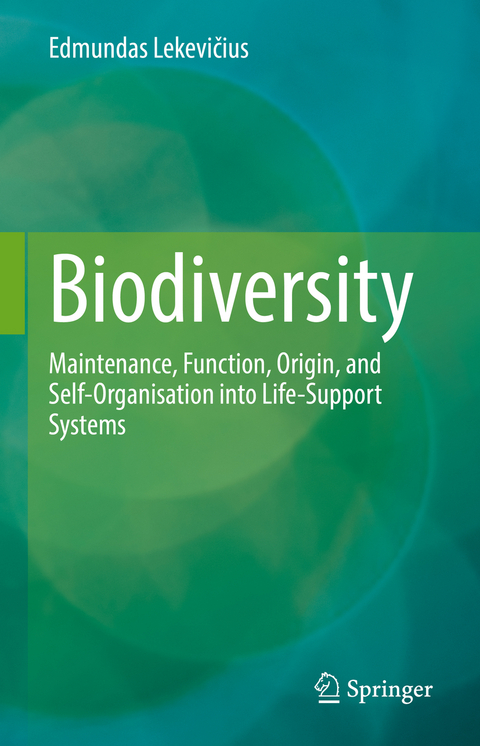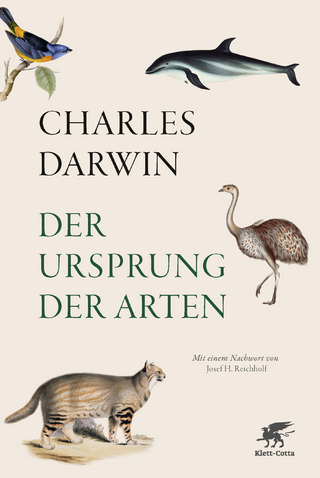
Biodiversity
Springer International Publishing (Verlag)
978-3-031-11581-3 (ISBN)
Species are not functionally independent. From a long-term perspective, only ecosystem with a fully integrated nutrient cycle is alive. The lack of trophic autonomy should be considered one of the key factors that ensure and maintain biodiversity. The variability of abiotic conditions, both in space and in time, also creates a huge diversity of niches and subniches for genotypes and species. In addition, life maintains its essential variables (biomass and productivity) as stable as possible due to the diversity of structures (genes, macromolecules, metabolic pathways, genotypes, species, etc.): the structures that reach optima are multiplied and thus activated, while the functioning of those which lost their optima is suppressed.
The facts and concepts presented in this monograph thus support the conclusions that
(a) genotype and species diversity is supported by trophic specialisation
(b) biodiversity helps to stabilise the functions (essential variables) ofindividuals, populations, and ecological communities(c) in evolution, the emergence of biodiversity is determined by heritable variation and the advantage of specialised (more effective) structures over non-specialised ones
(d) biodiversity is characterised by its ability to increase itself and to organise itself into relatively consistent structures, which we call production pyramids and nutrient cycles.This book therefore provides an answer to the question "why the diversity of life is of such and such a nature".
Edmundas Lekevicius is a theoretical biologist. He graduated from Alytus Secondary School No. 1, studied biology at Vilnius University, and continued his studies at the Institute of General Genetics in Moscow. After returning to Lithuania, he worked at the Institutes of Botany and Ecology, where he conducted genetic, ecological and evolutionary research. He taught general ecology and related disciplines at Vilnius University. His research focuses on ecology and theoretical biology.
Part I IN SEARCH FOR A FUNCTIONAL EXPLANATION.- 1 Introduction: contemporary biology struggles to explain the great diversity of genotypes and species.- 2 Methodological excursion: an apology for theoretical synthesis, simplicity, deductive method and conceptual modelling.- 3 Species do not just 'struggle.- 4 Species diversity as trophic specialisation.- 5 Producer diversity as reflection of variation in the abiotic environment.- 6 Do consumers maintain diversity of their food sources.- 7 Species diversity ensures higher total biomass and helps to stabilise it.- 8 Conspecifics do not just 'struggle' either.- 9 Genotype diversity as even more delicate specialisation.- 10 Environmental fluctuations and the daily role of selection.- 11 Summing-up: Biodiversity and plasticity of life (General Adaptation Theory).- 12 So, is nature a battlefield or a cooperative arena?.- Part II IN SEARCH FOR A SYNTHETIC EXPLANATION.- 13 Why an evolutionary biologist should start with ecological succession.- 14 Primary succession and self-organisation of biodiversity.- 15 Colonisation of the Hawaiian Islands, or how evolution complements succession.- 16 Self-assembly of ecosystems in the Paleozoic: Overview of the latest sources.- 17 Self-assembly of ecosystems in the Paleozoic: Interpretation and summary.- 18 The origin of life, and self-assembly of modern nutrient cycles.- 19 Appearance of modern ecological pyramids. Summing-up.- 20 Supercompetitors. Homo sapiens as a consumer of biodiversity.- 21 Has Darwin's theory really become obsole.- AFTERWORD.- INDEX.
| Erscheinungsdatum | 22.09.2022 |
|---|---|
| Zusatzinfo | XV, 239 p. 28 illus. in color. |
| Verlagsort | Cham |
| Sprache | englisch |
| Maße | 155 x 235 mm |
| Gewicht | 541 g |
| Themenwelt | Naturwissenschaften ► Biologie ► Evolution |
| Naturwissenschaften ► Biologie ► Genetik / Molekularbiologie | |
| Naturwissenschaften ► Chemie ► Organische Chemie | |
| Schlagworte | adaptability • genetic diversity • Self-Organisation • species diversity • Theoretical Biology |
| ISBN-10 | 3-031-11581-3 / 3031115813 |
| ISBN-13 | 978-3-031-11581-3 / 9783031115813 |
| Zustand | Neuware |
| Informationen gemäß Produktsicherheitsverordnung (GPSR) | |
| Haben Sie eine Frage zum Produkt? |
aus dem Bereich


